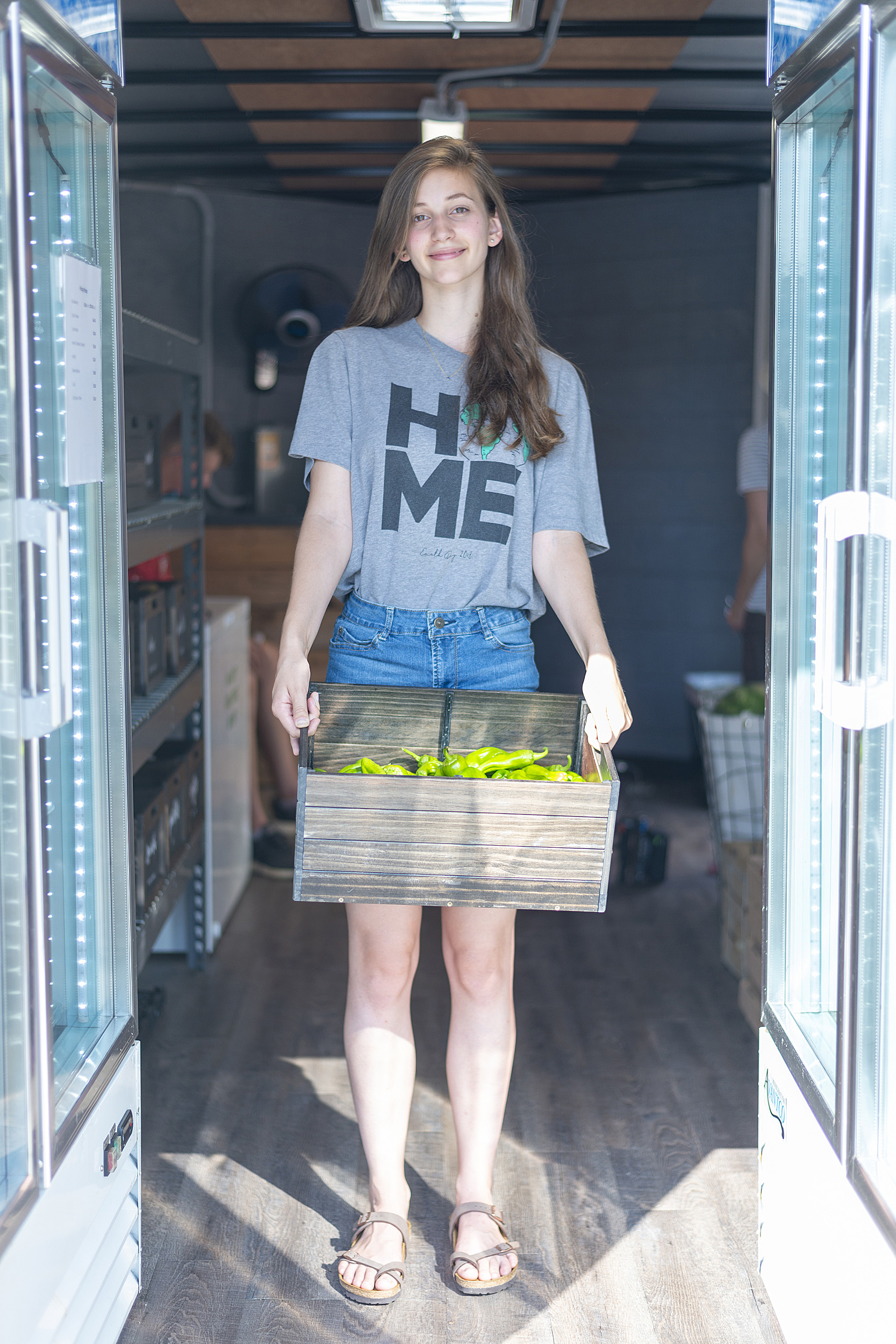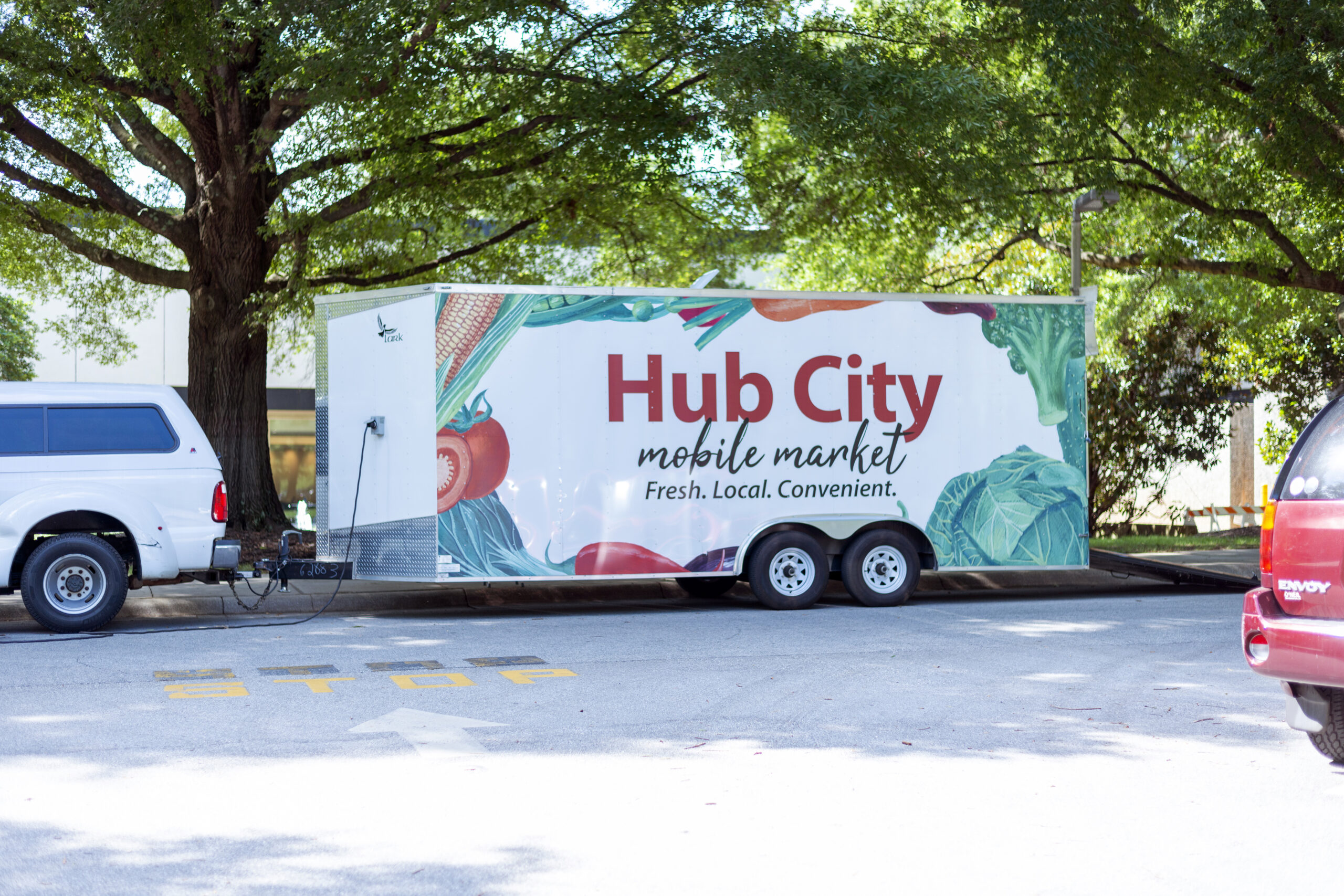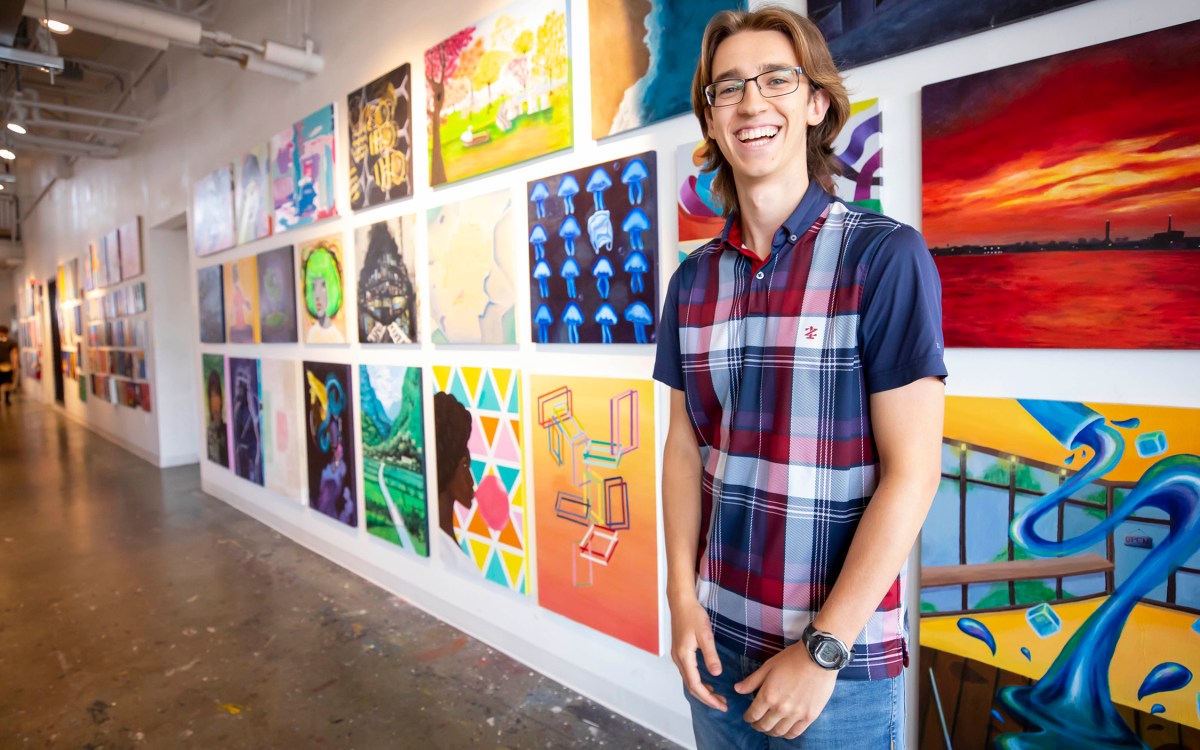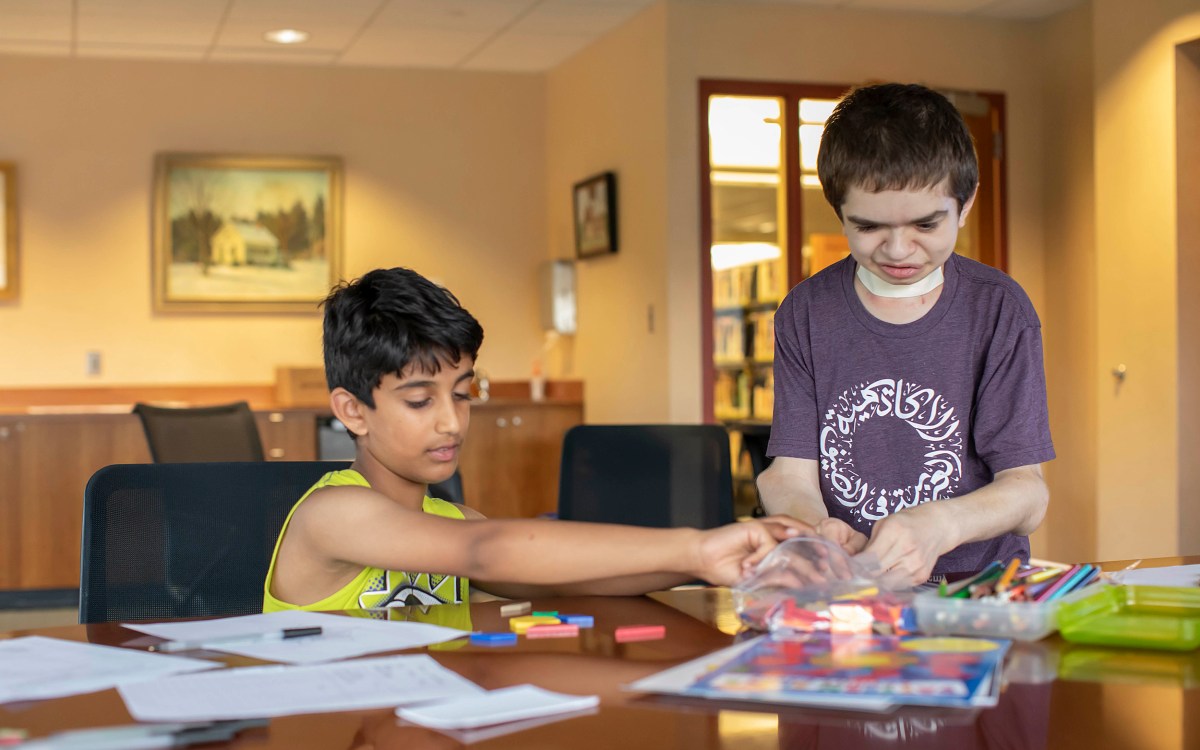Video by Kai-Jae Wang/Harvard Staff
Growing connections
Izzy Goodchild-Michelman ’23 cultivates produce and understanding of the ecosystem
SPARTANBURG, S.C. — Girl Scout Troop 1344 stood in a circle at Hub City Urban Farm, each sixth-grader wearing a different sticker on her T-shirt that identified her as a particular part of the ecosystem (sun, water, rock, lettuce, birds). Ignoring the steaming midday temperatures, they gleefully passed around a ball of orange rope and considered their interconnected roles in the complex web being formed.
“Lettuce needs water to grow,” said one girl, handing the rope to another.
Leading the lesson was Izzy Goodchild-Michelman ’23, who instructed the scout acting as “water” to let go of her part of the rope. It caused the entire web to lose its shape.
“Everything starts to fall apart in the ecosystem even if just one part disappears,” Goodchild-Michelman said.
The activity, followed by a scavenger hunt and an erosion-solution engineering challenge, was part of Goodchild-Michelman’s project for Service Starts with Summer, the College’s new initiative for incoming first-years to engage in their own communities before starting their College careers. The 18-year-old South Carolina native spent six weeks working for the farm, revamping the educational Seed to Table curriculum that serves elementary and middle-school students.
“I love South Carolina, but there are a lot of things we need to work on in our educational system. There’s really a lack of funding,” she said. “I experienced that to some extent … but I was able to get reinforcement outside of the classroom. Not every kid is that lucky.”
For Seed to Table, Goodchild-Michelman paired her lifelong love of environmental science with a growing interest in food insecurity. Northern Spartanburg County is a food desert, and Meg Whiteley, Hub City Urban Farm’s manager and Goodchild-Michelman’s supervisor, said some impoverished residents need to take multiple buses about 90 minutes just to get to a grocery store.
“For a lot of the residents here in a low-income bracket, they are reliant on walking or buses. To get to one they have to change buses three times so if you’re talking about buying fresh produce or frozen food or cold meats, it’s not feasible. To have a varied diet with those limitations is really a struggle. That’s one of the reasons we’re here.”


Izzy Goodchild-Michelman helped out with the food delivery truck by working on the farm that produced the food, assisting the children’s groups education, and writing grants to fund the project.
Kai-Jae Wang/Harvard Staff
Though it spans less than half an acre, the Hub City Urban Farm reaches mightily. Last year, it produced 1,800 pounds of produce, twice the prior year’s yield. Additionally, all of its organic fruits and vegetables, from tomatillos and okra to melons and pawpaw, sell on a mobile truck that visits 15 sites each week. On a hot evening last month, the mobile market visited the local YMCA, where customers purchased okra, potatoes, and peaches (buy two, get one free).
Goodchild-Michelman helped out with day-to-day crop maintenance at the farm but spent the bulk of her 80 required volunteer hours writing grants to fund the lessons and making sure Seed to Table met South Carolina educational standards. For guidance on creating the science and math activities, she sought advice from her fifth-grade teacher, Mary Ann Stoddard.
“The issue was covering the standards, but also it was important [to ensure] that if teachers are going to take their children out of the classroom, they need to know that the lesson needs to be used really well, that it will impact the [students’] learning,” Stoddard said.
Stoddard, a teacher at the Pine Street School for 35 years, praised Goodchild-Michelman, who helped launch a mentoring book club, as much for her generosity as for her work ethic.
“Isabella has such a passion for learning and science and math and reading. There’s also this desire to impact the community. She sees a vision, and she doesn’t give up,” Stoddard said. “We need people like Isabella who will work hard, and it’s not about them. It’s, ‘What can I do to give back?’”
Allyson Sandago, leader of Troop 1344, said she was grateful her girls were among the first beneficiaries of what she hopes will be a sustained effort.
“This is science, hands-on, in real life. This year we have a very specific requirement and the farm lessons are a natural fit to round out our experience going into sixth grade,” Sandago said. “They need to have their hands out in the world so they can value it.”
For Goodchild-Michelman, “Seeing the smiles on the girls’ faces — and seeing a couple of them really understanding those scientific and ecological concepts — made me happy.”
“In the end, that’s really what the project is about — reaching a lot of people, but also improving the lives of each individual student,” she said.







